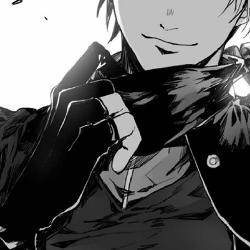IELTS025 英语学习笔记
口语
反义疑问句
添加到陈述句末尾的短疑问句,用于检查某事是否真实或邀请他人同意我们的意见。
- University feels like a very long time ago now, doesn’t it?
现在,大学时光好像是很久以前的事了,不是吗?
如果主句中包含助动词 「to have」 / 「to be」或情态动词(must / can / will),则在附加疑问句中重复该动词以及我们所称呼的人。
如果主句中的动词采用肯定形式,则附加疑问句必须采用否定形式。反过来,如果主句中的动词采用否定形式,则附加疑问句必须采用肯定形式。
- You will come to the party, won’t you?
你会来参加聚会,是吗?
如果句子中没有助动词或情态动词,则在附加疑问句中使用动词 「to do」
- You work near the shopping centre, don’t you?
你在购物中心附近工作,不是吗? - We forgot to invite Pablo, didn’t we?
我们忘了邀请帕布罗,不是吗?
如果你在主句中使用 「I am」来讨论你自己,则附加疑问句变为 「aren’t I」
- I am a great cook, aren’t I?
正式场合,可能不写缩写:
-
They went to the party, did they not?
-
last minute(最后一刻、最后关头)
-
to suppose(认为、假设、设想)
-
group chat(群聊、群组聊天)
新概念 2 L26 The best art critics 最佳美术评论家
词汇
- art n. 艺术
- artist n.
- work n. 作品
a work of art - museum
- gallery 美术馆
- art lover 艺术爱好者
- critic n. 评论家
- criticise vt. 批评
- 反义词:praise 称赞;赞扬
- criticism n. 批评
- 回应批评:reply to ~
- 避免批评:avoid ~
- 音乐批评家 a music critic
- 艺术评论家 an art critic
- 影评家 a film critic
- paint n. 油漆 vt. 画
- painting n. 油画
- painter 油画家
- drawing 图画
- sketch 素描
- water color 水彩画
- pretend vt. 假装
- stop pretending! 别装蒜了
- pretend illness 装病
- pretend death 装死
- pretend to do
- pattern n. 图案,花样
- curtains n. 窗帘
- material n. 材料,原料
- building materials
- dress material
- appreciate vt. 感激
I appreciate your help.- (口语)I really appreciate it! 对此,我真的非常感激
Thank you! / That’s very nice of you! - vt. 欣赏,理解(艺术作品)
- appreciate a novel
- (口语)I really appreciate it! 对此,我真的非常感激
- notice vt. 注意到
- Sorry, I didn’t notice you.
- notice sb do 与 notice sb doing
- whether /'wɛðɚ/ 是否
- weather /ˈweðər/ 天气(两个词发音基本相同)
- hang /hæŋ/ - hung /hʌŋ/ - hung 悬挂
- hung up the phone 挂电话
- critically adv. 批评地
- upside down 上下颠倒地
- hold a book upside down
- inside out 里面翻到外面
You’ve got your sweater on inside out.
你把毛衣穿反了
原文
I am an art student and I paint a lot of pictures. Many people pretend that they understand modern art. They always tell you what a picture is ‘about’. Of course, many pictures are not ‘about’ anything. They are just pretty patterns. We like them in the same way that we like pretty curtain material. I think that young children often appreciate modern pictures better than anyone else. They notice more. My sister is only seven, but she always tells me whether my pictures are good or not. She came into my room yesterday.
‘What are you doing?’ she asked.
‘I’m hanging this picture on the wall, ’ I answered. ‘It’s a new one. Do you like it?
’She looked at it critically for a moment. ‘It’s all right, ’ she said, ‘but isn’t it upside down?’
I looked at it again. She was right! It was!
参考译文:
我是个学艺术的学生,画了很多画。有很多人装成很懂现代艺术的样子,总是告诉你一幅画的“意思”是什么。当然,有很多画是什么“意思”也没有的。它们就是些好看的图案,我们喜爱它们就像我们喜欢漂亮的窗帘布一样。我觉得小孩子们往往比任何人都更能欣赏现代绘画,他们观察到的东西更多。我的妹妹只有 7 岁,但她总能说出我的画是好还是环。昨天她到我房里来了。
“你在干什么呢?”她问。
“我正把这幅画挂到墙上去。”我回答说,“这是幅新画,你喜欢吗?”
她用挑剔的目光看了一会儿。“还可以吧。”她说,“不过,是不是挂倒了?”
我再次看了看画。她说对了!是挂倒了!
- 宾语从句
- that 连词(占位)
- V that 主 + 宾
She said that she would leave a message on his desk the next day.
- V that 主 + 宾
- 时态:主现从任意,主过从必过。
- 陈述语序
- what / what / where / when / why / how
- 我不知道他喜欢什么
I don’t know what he likes. - 我不知道他昨天怎么来的。(how)
I don’t know how he came yesterday. - whether / if:是否
- that 连词(占位)
- 定语从句 that we like pretty curtain material
- the way (that) + 句子










